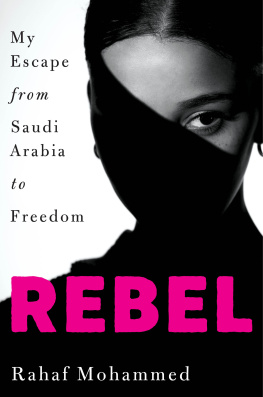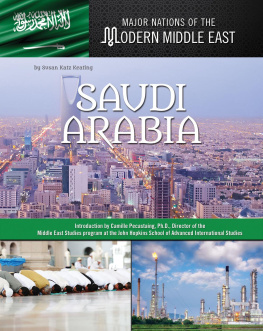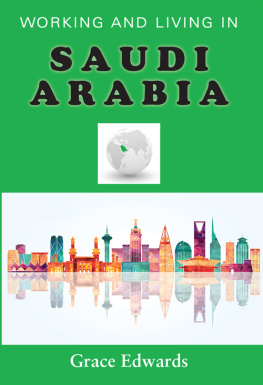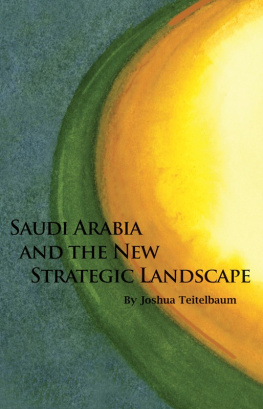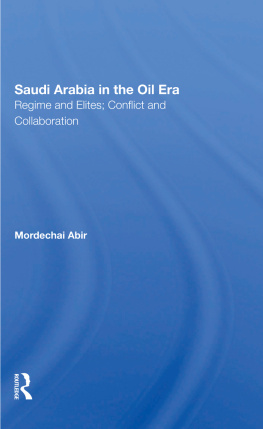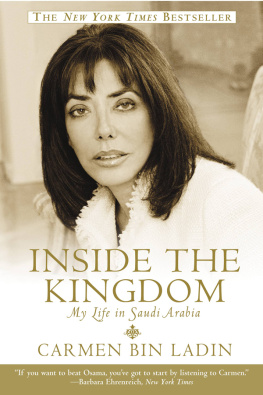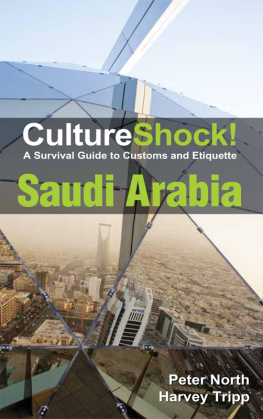Rahaf Mohammed - Rebel: My Escape from Saudi Arabia to Freedom
Here you can read online Rahaf Mohammed - Rebel: My Escape from Saudi Arabia to Freedom full text of the book (entire story) in english for free. Download pdf and epub, get meaning, cover and reviews about this ebook. year: 2022, publisher: HarperCollins, genre: Non-fiction. Description of the work, (preface) as well as reviews are available. Best literature library LitArk.com created for fans of good reading and offers a wide selection of genres:
Romance novel
Science fiction
Adventure
Detective
Science
History
Home and family
Prose
Art
Politics
Computer
Non-fiction
Religion
Business
Children
Humor
Choose a favorite category and find really read worthwhile books. Enjoy immersion in the world of imagination, feel the emotions of the characters or learn something new for yourself, make an fascinating discovery.
- Book:Rebel: My Escape from Saudi Arabia to Freedom
- Author:
- Publisher:HarperCollins
- Genre:
- Year:2022
- Rating:4 / 5
- Favourites:Add to favourites
- Your mark:
- 80
- 1
- 2
- 3
- 4
- 5
Rebel: My Escape from Saudi Arabia to Freedom: summary, description and annotation
We offer to read an annotation, description, summary or preface (depends on what the author of the book "Rebel: My Escape from Saudi Arabia to Freedom" wrote himself). If you haven't found the necessary information about the book — write in the comments, we will try to find it.
Rebel: My Escape from Saudi Arabia to Freedom — read online for free the complete book (whole text) full work
Below is the text of the book, divided by pages. System saving the place of the last page read, allows you to conveniently read the book "Rebel: My Escape from Saudi Arabia to Freedom" online for free, without having to search again every time where you left off. Put a bookmark, and you can go to the page where you finished reading at any time.
Font size:
Interval:
Bookmark:

Map by Mary Rostad
For all the women who are fighting for their freedom
Content warning: This book contains scenes of violence, including sexual assault, as well as suicidal ideation. Please read with care.
{D ECEMBER 31, 2018}
A ll that stood between me and freedom was a car ride. For more than a year Id bided my time, waiting for the right moment to escape. I was eighteen years old and scared to death that my carefully laid plans might backfire. But my heart was full of rebellion against the constant fear, cruel rules and ancient customs that stifle and sometimes kill girls like me in Saudi Arabia. And it soared when I imagined a life away from them.
I had my phone, but my passport was with my eldest brother. Getting it and hiding it so I would have it when the time came to run was key. I was trying to be cool, trying to look like the dutiful daughter packing for a holiday, trying to calm the waves of anxiety as I watched from my bedroom the family prepare for departure and then gather for lunch before setting out for Kuwait.
We were going to Kuwait City, a ten-hour drive from our home in Hail, to visit relatives for a one-week family holiday. This was my opportunity to execute my plan. Sitting there watching my brothers carry our suitcases out to the car, I felt a mixture of sadness and excitement. I was torn between hugging my brotherswhich is actually forbidden because its seen as a sexual actand hoping nothing would get in the way of my decamping.
The bedroom walls around me were bare, with nothing that might make you think a young woman lived in this room. It was not halalpermissiblein this strict society to have signs of life on your bedroom wall. The opposite is haramthat which is forbidden. I remember the teddy bear I had on my bed as a little girl being taken away from me because it was haramonly the Prophet can be imagined in a photo or a form. The drawings Id once done of people and animals were confiscated, since anything that has a soul is seen as competing with the Prophet and therefore haram. My textbooks and notebooks were scattered around, reminding me that my first semester at the University of Hail was over and I would not be returning. I sat on my bed contemplating my life as the Saudi girl who loved her family but could not abide the no-girls-allowed mantra my family swore by; the rebel daughter and sister being driven away by a toxic mix of cultural contradictions.
I was taught in school that Saudi Arabia is the envy of the world; the richest and best country with the most oil; a country that requires its people to make the hajj, a pilgrimage to Mecca, at least once in a lifetime to renew their sense of purpose in the world. Even as a young girl I wondered why oil and resorts and holy treks made this the country everyone else wanted to live in. And it always irked me that a person could make a hajj and be forgiven for everything he does in his whole life, even if he beats his wife or murders a stranger.
My childhood eyes had feasted on other aspects of Saudi: the mountains near our home that beckoned us to come with our picnics and hike to our hearts content; the vast, ever-changing deserts that never failed to capture my imagination with their undulating sand dunes that changed colour from cool beige to fiery red as the sun rose and set. When my family went to the desert at night, usually to get away from the suffocating summer heat, we would play hide-and-seek in the dark, struggling to get a footing in the soft sand, chasing rabbits and jerboa (a desert rodent) and each other without a care in the world. We ran races and of course the winner got a prize. Wed sing songs, recite poems and dance the traditional dance called Ardah, which is for men but we danced it with our brothers for fun. And always we heard stories from our parents that were different from the ones we heard in school. Some were about the Al Rasheed family who ran this region before the Saud family killed them and took over; others were about the history of our people and the ability of the nomadic Bedouins to subsist in the desert on minimal food and live with simplicity. But the stories we loved best were the ones our parents used to tell us about falling in love, about when they were young. Sharing old stories is like the glue that holds a family together; we never got tired of hearing about the past. I know now we were making precious memories.
From childhood, however, I was aware of the many contradictions in my homeland. While the landscape is mostly shades of beige and white, with patches of green near a water oasis and mountains of outcropping rocks and trees, the softly muted colours of Saudi Arabia are sharply contrasted by the sight of bodies shrouded in black bags moving on the byways. Women and girls over the age of twelve are covered lest a man cast his eyes on their body shapes. In fact, in my family I had to wear an abayaa loose, shapeless black garment draped over my shoulders and covering my bodyat the age of nine, and a niqab, which is like a mask on our faces that exposes only our eyes, at the tender age of twelve. I was a young girl when I began to wonder if this was a form of punishment. If a man cant control himself, why must a woman hide herself behind robes as though it is her fault? And if women do have to be covered, why is it that men who are not in jeans and Western dress wear white robes that deflect the blazing heat, but the women must wear black that absorbs it?
More than half of Saudi Arabias population of 34 million is under the age of twenty-five, which I felt was a good omen for change. But although the rulers of the kingdom, who claim they act in the name of God, have declared some changes in the strict Islamic rules Saudis live with, and call for tolerance and moderation, they still crucify, behead and torture anyone who doesnt agree with the government. The mutaweena.k.a. religious policepatrol the streets, even the universities, supposedly making sure the citizens enjoy good and forbid wrong, which means the shops are closed five times a day during prayers, dress codes for women are strictly enforced and the separation of men and women is fanatically observed, as is the ban on alcohol. In fact, lots of people dont actually pray; girls meet boyfriends in secret places and many drink alcohol without being caught. Since 90 percent of the workforce is made up of foreignersSaudis dont do blue-collar jobsif youre sneaking out to meet your friends, the Indian or Afghan man working in the coffee shop isnt going to report you or even understand the language you are speaking. Most of the Saudis who do hold jobs work for the government, where the men nap in the afternoon and tend to gather at about 5 p.m. to socialize until well after midnight.
My family are Sunni Muslims from the Al-Shammari tribe that used to rule the Hail region until the Saud tribe took over. Hail is the capital of this northwest region. Its the most conservative part of Saudi Arabia, and its people are famed for their generosity, which is why our home is so often open to others who come for coffee or a meal. My family is part of the elite: we live in Salah Aldin, the wealthy part of Hail, where there are no shops, only houses, in a big nine-bedroom house with two kitchens (one on the first floor for cooking, the other on the second floor for snacks), ten bathrooms, six sitting rooms and one small garden. We have a cook, a driver and a housekeeper, and there are six family cars; the one waiting for us in the driveway to take us to Kuwait is a black Mercedes. My family also has privileges and a lot of advantages, such as the ability to take holidays in other Arab states like Jordan, Qatar, Bahrain, the United Arab Emirates and Turkey.
Font size:
Interval:
Bookmark:
Similar books «Rebel: My Escape from Saudi Arabia to Freedom»
Look at similar books to Rebel: My Escape from Saudi Arabia to Freedom. We have selected literature similar in name and meaning in the hope of providing readers with more options to find new, interesting, not yet read works.
Discussion, reviews of the book Rebel: My Escape from Saudi Arabia to Freedom and just readers' own opinions. Leave your comments, write what you think about the work, its meaning or the main characters. Specify what exactly you liked and what you didn't like, and why you think so.

